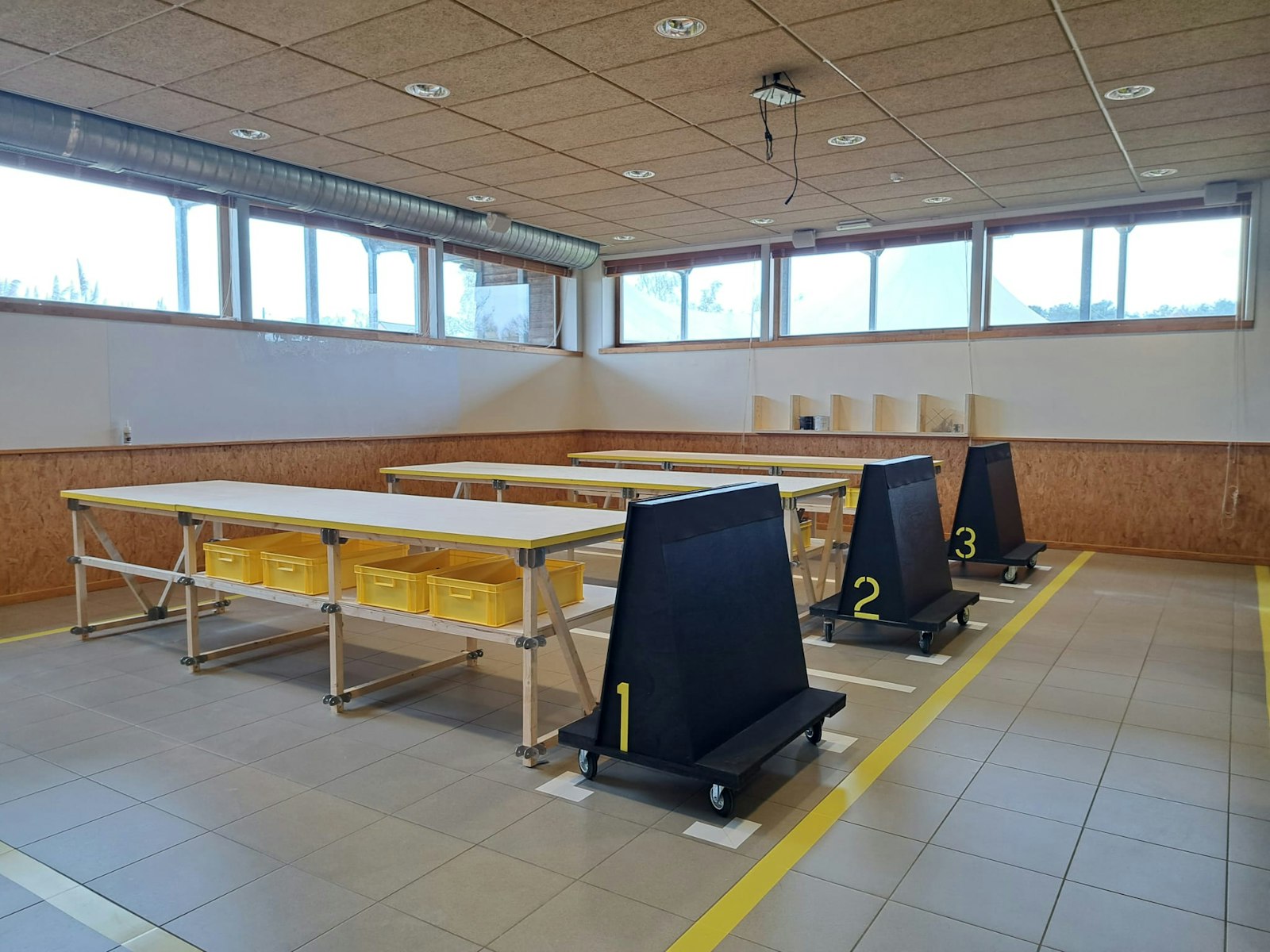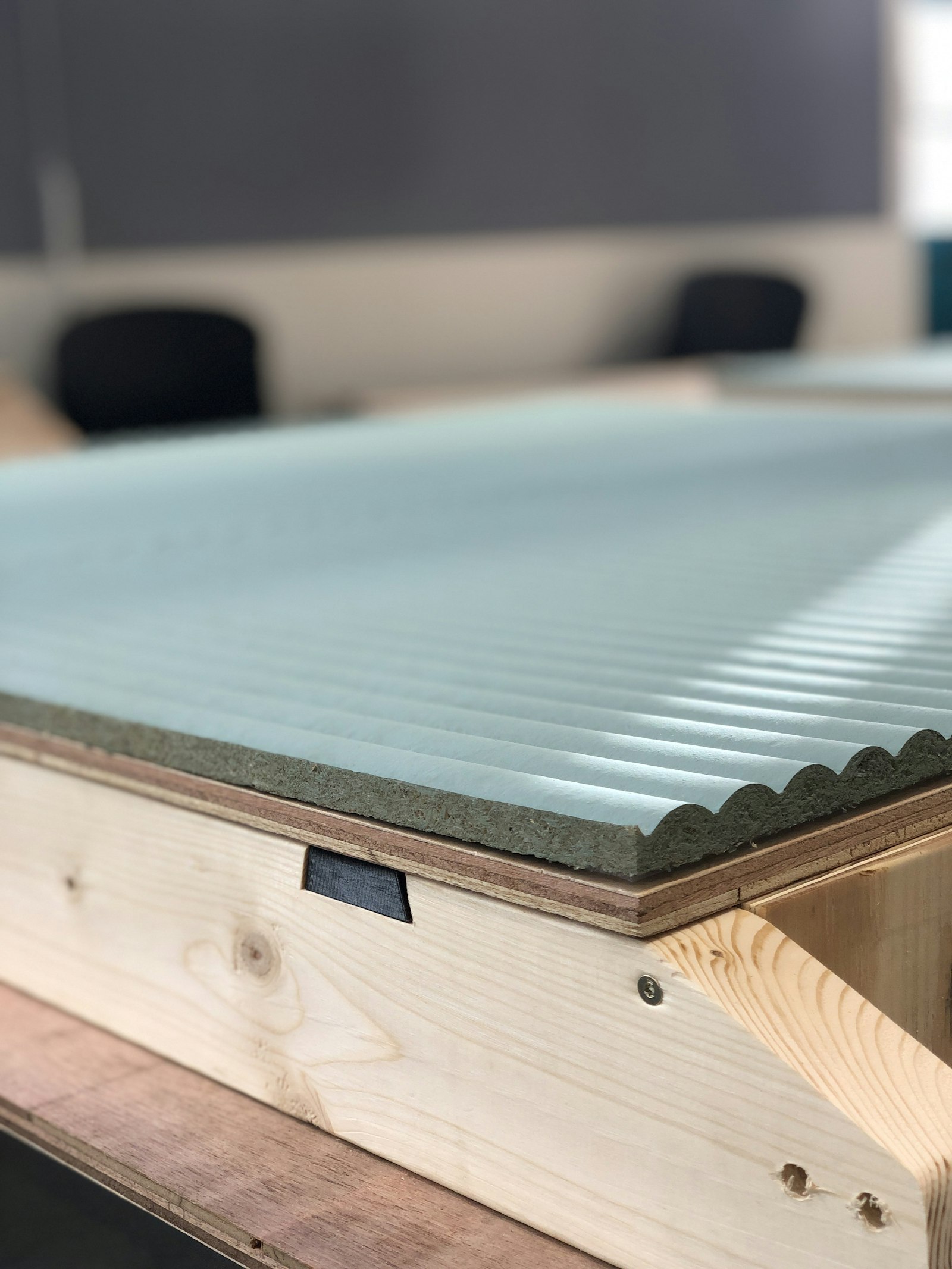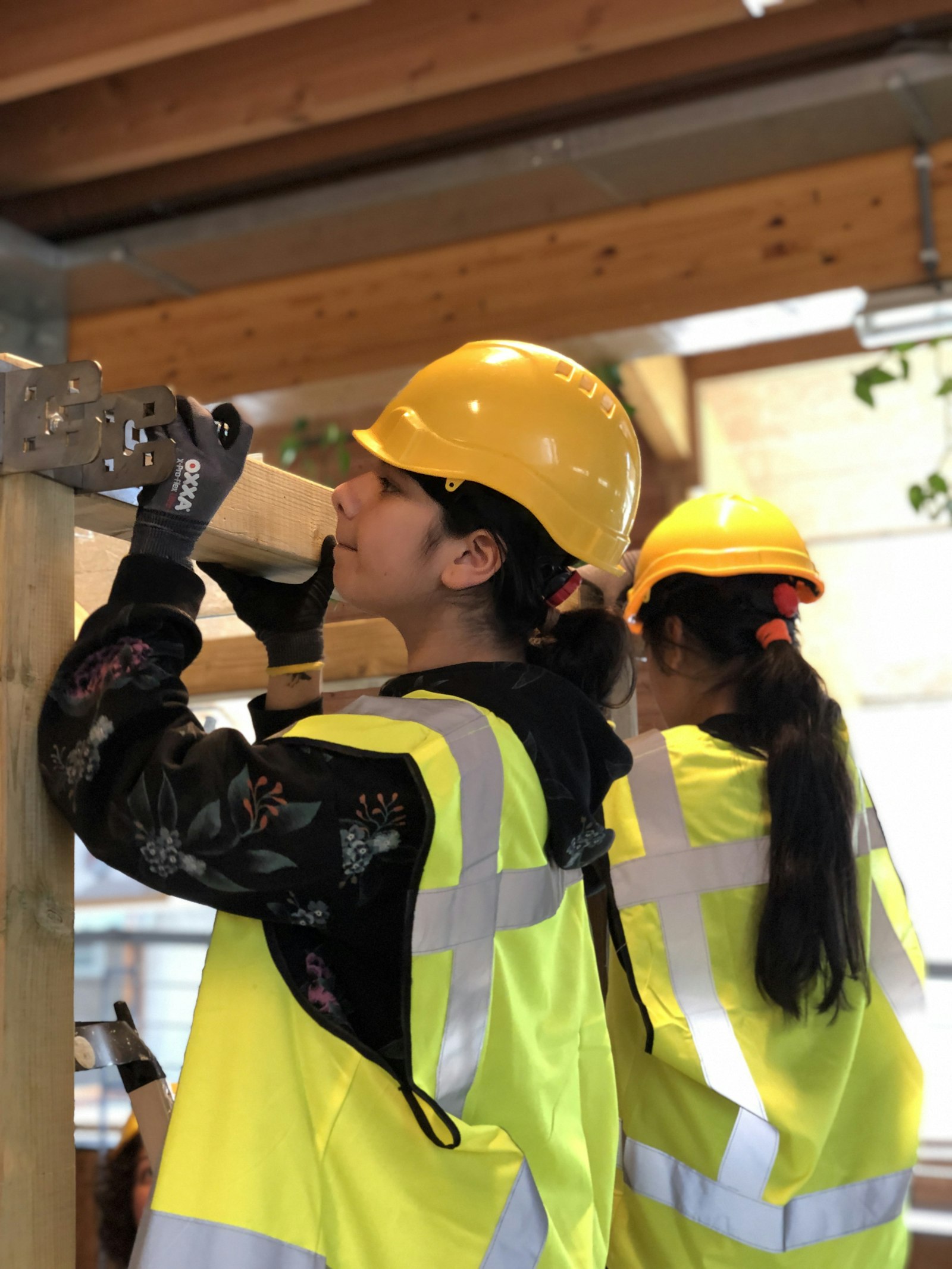de Velde
Circulaire bouwkit voor leeromgevingen
Circular construction kit for learning environments is a simulation and construction kit to get young people interested in circular and bio-based construction.
Circular construction kit for learning environments is a real-life simulation and construction kit to encourage young people aged ten to fourteen to build on a circular and bio-based basis. The simulation consists of two physical spaces at Kamp C (a prefab lab and a construction site), a digital construction kit and a circular construction kit with bio-based materials. The students prepare a digital design remotely, before actually realising their project on site. A building system with modular mounting system and unique dimensions has also been created for this purpose.
The jury on Circular construction kit for learning environments:
The learning environment creates a direct link between the digital world and reality, while fully addressing the principles of circularity. As a student, you get a direct and successful practical experience using building techniques and materials that are good for the planet. This prepares young people for what circular building really can be.
What does this award mean to you?
PG21 is a design studio encapsulated in a very new Thomas More postgraduate programme. We bring together recently graduated creatives such as interior designers, architects and product developers to realise specific projects with social impact, as a team and under the guidance of experienced creative entrepreneurs. During this process, they learn, hands-on, the skills to manage, budget and implement projects. This award is a real boost, not only for the individual designers who are at the start of their careers, but it also confirms that with the process-based approach of the PG21 design studio with well-composed project teams, we can realise projects with impact.
How did the idea for this project come about?
The province of Antwerp is focusing on hybrid learning environments for young people between the ages of ten and fourteen to help them in their choice of study. The focus is on a number of sectors where there are shortages, including the construction sector. For safety’s sake, young people are not allowed to actually carry out real jobs on the site. So we chose to build a simulation on the site of Kamp C. It’s vital that the construction sector looks very different in fifteen years’ time, so this simulation offers young people the unique opportunity to get acquainted with the future of construction today and thus with the principles of modular, circular and bio-based construction.
What makes your project so special?
Despite the controlled environment, we want to give young people the feeling that they are working on a real construction project. We developed our own building system with a modular mounting system and unique dimensions. On the one hand, it was done out of necessity, because manufacturers of bio-based materials are not yet using a standard. On the other hand, we have succeeded in applying the circular principles as much as possible within the design process and the construction kit itself. We make maximum use of recovered wood and a minimum of different components. The kit can be expanded with new bio-based materials. All components can be separated down to material level, but if the project ends, the components can also be used to build compact pop-up homes or installations.








